Tag: Duffié (Alfred N. A.)
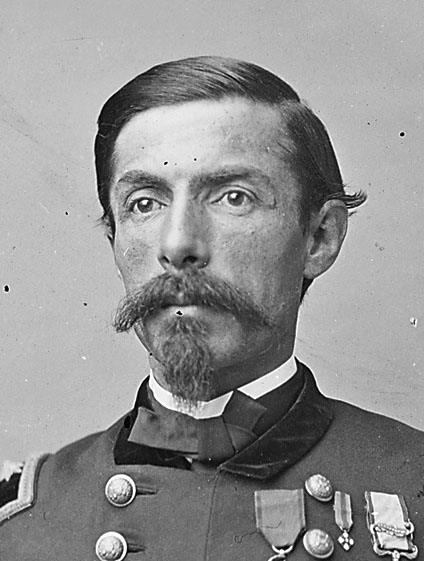 Wikipedia says: Alfred Napoléon Alexander Duffié (May 18, 1833 – November 8, 1880) was a French-American soldier and diplomat who served in the Crimean War and the American Civil War.
Wikipedia says: Alfred Napoléon Alexander Duffié (May 18, 1833 – November 8, 1880) was a French-American soldier and diplomat who served in the Crimean War and the American Civil War.
…When the American Civil War broke out, Duffié enlisted in the Union Army. He first joined the 2nd New York Cavalry Regiment (also known as the Harris Light Cavalry), on August 9, 1861, and was soon promoted to the rank of captain. The somewhat quarrelsome Duffié was placed under arrest several times for confrontations with other officers; in one incident, he challenged General Fitz John Porter to a duel. In July 1862 Duffié was appointed to command the 1st Rhode Island Cavalry, with the rank of colonel, by that state’s governor, William Sprague IV. Though the 1st Rhode Island’s officers initially refused to serve under a foreign-born leader, Duffié soon won them over and reorganized the 1st into a fine fighting unit. Assigned to the command of General William Averell, they saw action against Confederate troops under Thomas J. “Stonewall” Jackson in August 1862, in fighting near Cedar Mountain, Virginia.
At the Battle of Kelly’s Ford in March 1863 Duffié ordered a charge, against Averell’s orders to keep on the defensive, which forced the opposing cavalry into retreat. When the Union cavalry was reorganized under Alfred Pleasonton, Duffié was promoted to divisional command. On June 9, 1863, Duffié’s division was assigned to the left wing of an intended assault on the Confederate cavalry, but initially lost its way, putting them behind schedule. Meanwhile, the Union right wing had opened the Battle of Brandy Station. Arriving on the field, Duffié was ordered toward the town of Stevensburg; there his division was halted by a smaller Confederate force. As a result, he was demoted back to regimental command. On June 17, 1863, he led the 1st Rhode Island on a reconnaissance mission toward Middleburg, Virginia. There he came close to capturing Confederate cavalry commander J.E.B. Stuart; after his narrow escape, Stuart returned to Middleburg and inflicted a decisive defeat on Duffié’s regiment; only 61 members of the 1st Rhode Island got back to the Union lines.
Relinquishing his command, Duffié returned to Washington, D.C.. Though he received a promotion to the rank of brigadier general on June 23, 1863, he would not see active duty again until that fall when he was assigned to raise and train cavalry units in West Virginia. His division of West Virginia volunteers saw action around Lewisburg in December 1863 and as part of General David Hunter’s 1864 campaign in the Shenandoah Valley. He also took part in operations against Confederate guerrilla leader John S. Mosby, promising to capture the so-called “Gray Ghost” and bring him back to Washington. Instead, it was Duffié who was captured by Mosby’s men near Bunker Hill, West Virginia, on October 20, 1864. Due to this incident General Phillip Sheridan requested that he be dismissed from the army calling him “a trifling man and a poor soldier. He was captured by his own stupidity.” He was sent to prison camp, then paroled on February 22, 1865. Duffié was then ordered to Texas for a campaign against Confederate General Edmund Kirby Smith, but that campaign ended before he could arrive.
Showing all 6 resultsSorted by latest
-

Image ID: APCK
$5.99 -
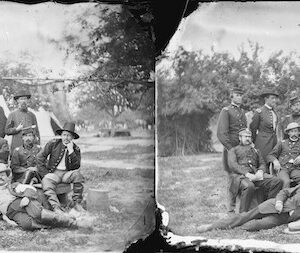
Image ID: ARSM
$5.99 -
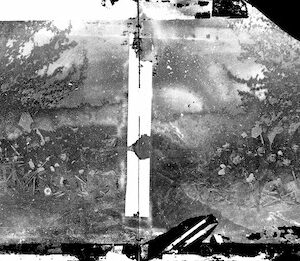
Image ID: AJSS
$0.99 – $6.99 This product has multiple variants. The options may be chosen on the product page -
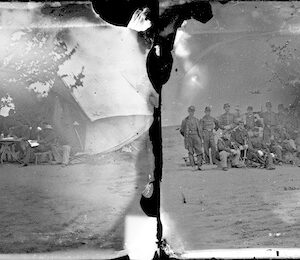
Image ID: ARRY
$5.99 -
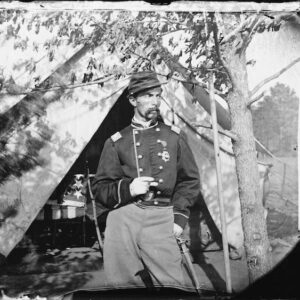
Image ID: AJPX
$5.99 -
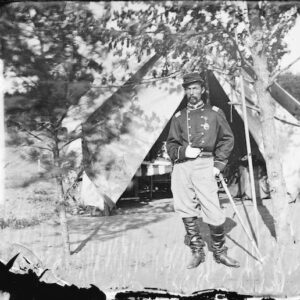
Image ID: AJSP
$5.99